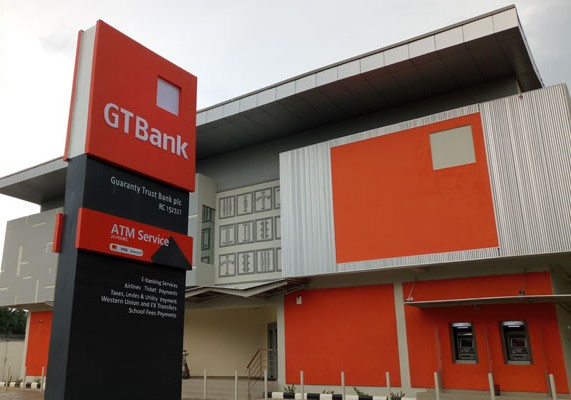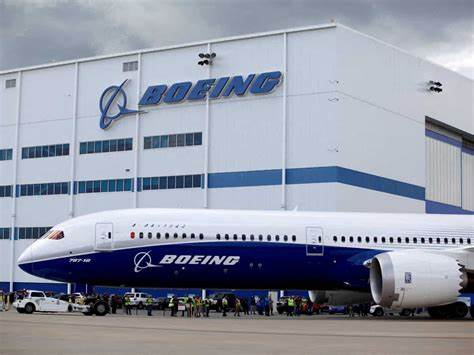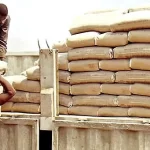A Nation in Crisis: Poverty Amid Abundance
For many Nigerians, daily survival has become a battle. From food to transportation, the rising costs have plunged millions into hardship, exacerbating the already harsh realities of poverty in a resource-rich country. The term “poverty crisis” is no longer a policy buzzword but a daily experience.
With food prices soaring by over 37% in just one year, many Nigerians now face the impossible choice of sacrificing necessities. A recent survey by Nigeria’s National Bureau of Statistics found that over 60% of households have cut back on food and other essentials to survive.
Join our WhatsApp Channel“The crisis isn’t just about numbers. It’s about life itself,” explains Maryam Adekunle, a Lagos resident. “I can no longer buy the basics for my family. Every day, I feel we are closer to starvation.”
Food Inflation: Nigeria’s Achilles Heel
A primary driver of this poverty crisis is food inflation. Food prices, which form a major portion of household expenditure, have skyrocketed, and many Nigerians blame ineffective government measures. Despite a declared “state of emergency” on food security, inflation persists due to reliance on food imports, low agricultural output, and inefficiencies in the food supply chain.
Dr. Ifeanyi Nwankwo, an economist, elaborates: “The government’s efforts are reactive, not proactive. Nigeria imports a majority of its staple foods, including wheat and rice. When global prices rise, Nigerians feel the pinch. A robust agricultural policy could address this, but it requires real commitment.”
Nigeria’s Policy Limbo: Words Without Action
Promises of a duty-free import policy for staple foods aimed at reducing the food crisis have stalled. The Nigeria Customs Service claims it awaits directives, but with no resolution in sight, Nigerians are left in limbo.
“If they won’t reduce the cost of food, what’s the purpose of governance?” asks Chibuzo Okoro, a market vendor. “We hear about policies every day, but the prices keep rising. It’s like they don’t care about the poor.”
Economic analysts argue that the government’s policy delays reveal a dangerous prioritisation of fiscal gains over the well-being of its citizens. However, in a country where over half of household incomes go toward food, the consequences are severe.
“There’s a clear disconnect,” Dr. Nwankwo emphasises. “The government needs to understand that food security is about human security. Every day they delay is another day Nigerians go hungry.”
READ ALSO: Nigeria’s Poverty Crisis: The Cost Of Mismanagement, Policy Failures
Structural Failures Amplify Poverty Crisis
Nigeria’s reliance on imported food products has exposed underlying weaknesses in its economic structure. Years of neglect and policy failures in the agricultural sector have left the nation vulnerable to international market fluctuations. Poor infrastructure, lack of access to finance for farmers, and security challenges in rural areas all contribute to Nigeria’s dependence on imports.
“Why should a country as fertile as Nigeria depend on food imports?” asks agriculturalist Bisi Afolabi. “Our farmers don’t have access to the support they need to grow crops sustainably. It’s a complete waste of potential.”
Local farmers have echo these frustrations, as insecurity and lack of government support make it increasingly difficult to farm as bandits attack their farms.
Solutions to Nigeria’s Poverty Crisis: Beyond Rhetoric
The poverty crisis is a test of Nigeria’s political will. Experts argue that Nigeria has viable options to address the food crisis, but these require prompt action and effective implementation. The African Continental Free Trade Area (AfCFTA) could offer a short-term solution by allowing Nigeria to source essential goods from neighbouring countries at lower costs.
Dr. Nwankwo believes that leveraging AfCFTA, along with supporting domestic agriculture, could alleviate the immediate burden: “If Nigeria can coordinate with neighbouring countries to source affordable food and simultaneously invest in local agriculture, we could see some relief.”
However, long-term solutions require more than policy declarations. Nigeria’s government must address the structural deficiencies that have led to this crisis. Investments in rural infrastructure, farmer support programs, and technology to improve agricultural productivity are essential to reducing dependency on imports and stabilising food prices.
“We don’t need empty promises,” says Afolabi. “If Nigeria can empower farmers and improve rural security, we’ll see a more resilient economy and less dependency on imports.”
Nigerians Call for Accountability Amid the Poverty Crisis
As the poverty crisis deepens, many Nigerians demand accountability and transparency in policy implementation. Citizens want to see measures like the duty-free food policy implemented without bureaucratic delays.
Ngozi Amadi, a single mother of three, shares her frustration: “I don’t want to hear promises. We want action. Every week, prices go up, and wages stay the same. The government should stand up and be accountable.”
Activists argue that Nigeria’s current economic situation is a reflection of leadership priorities. Without significant policy shifts that place the welfare of citizens over fiscal stability, the poverty crisis will persist.
“We’re not asking for miracles,” Amadi says. “Just basic governance. The people need food, education, and healthcare. We’re asking for dignity.”
The Way Forward: Resilient Agriculture, Transparent Policies, and Social Safety Nets
As Nigerians endure the hardships brought on by the poverty crisis, the way forward must be clear. Experts suggest that social safety nets for the most vulnerable populations, transparent policy implementation, and prioritisation of food security can help rebuild trust and stabilise the economy.
“If Nigeria is serious about resolving this crisis, the government must be willing to invest in the people,” Dr. Nwankwo concludes. “Social safety nets, particularly for low-income families, are crucial. It’s about ensuring no one is left behind.”
Building a resilient agricultural sector through incentives for farmers, land reforms, and investments in agricultural technology could serve as a foundation for economic recovery and self-sufficiency.
“Nigeria has the potential,” Afolabi asserts. “The problem is the lack of political will. If we prioritise the people, we can overcome this crisis.”
Hunger in the Land of Plenty
Nigeria’s poverty crisis highlights a critical issue in governance and resource management. For a nation endowed with vast resources, the current hardships reveal systemic issues that go beyond economics—they strike at the heart of Nigerian identity and resilience. As prices continue to rise, the question remains: will Nigeria’s leaders choose the people over politics?
The path forward is complex but achievable. By putting people first and addressing structural issues in agriculture and social support, Nigeria can build a future where no citizen has to choose between food and survival.
Emmanuel Ochayi is a journalist. He is a graduate of the University of Lagos, School of first choice and the nations pride. Emmanuel is keen on exploring writing angles in different areas, including Business, climate change, politics, Education, and others.
- Emmanuel Ochayihttps://www.primebusiness.africa/author/ochayi/
- Emmanuel Ochayihttps://www.primebusiness.africa/author/ochayi/
- Emmanuel Ochayihttps://www.primebusiness.africa/author/ochayi/
- Emmanuel Ochayihttps://www.primebusiness.africa/author/ochayi/



















Follow Us